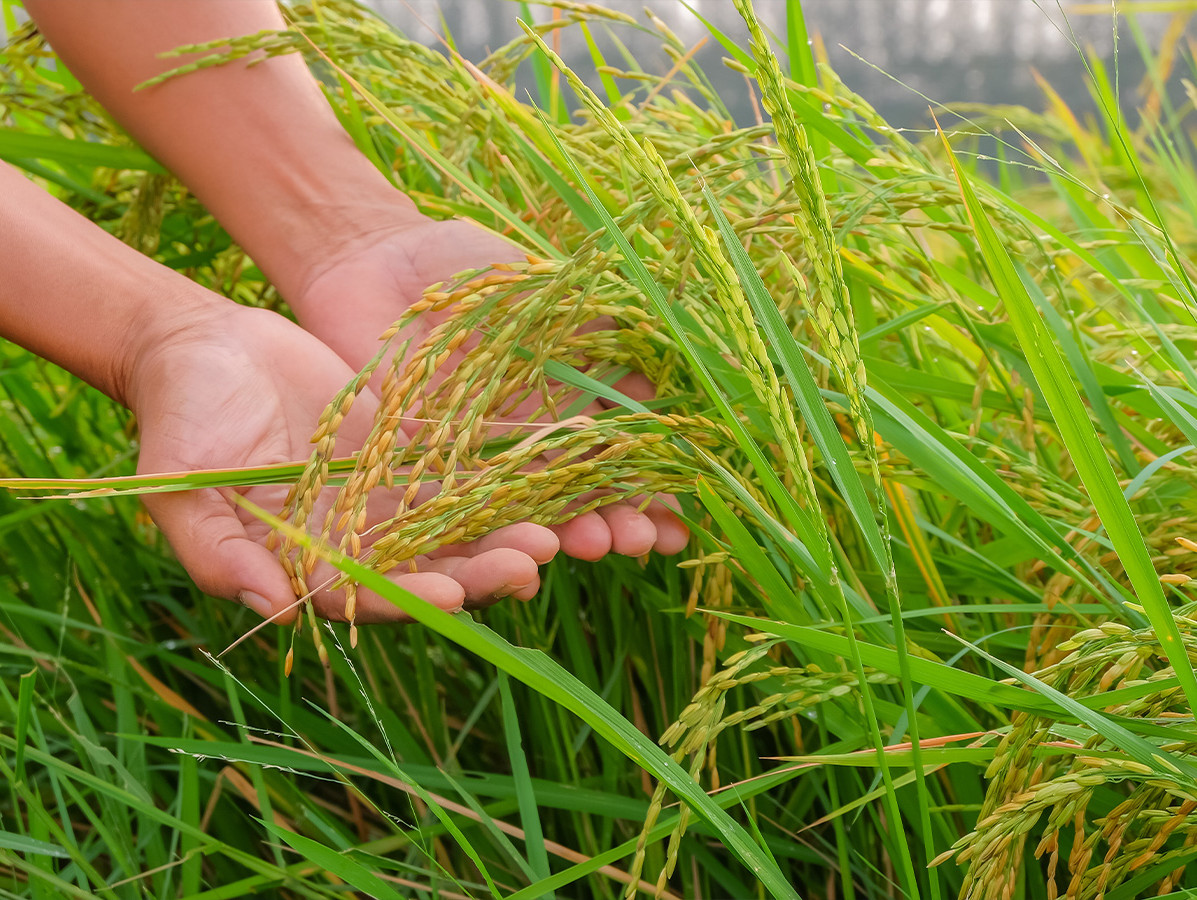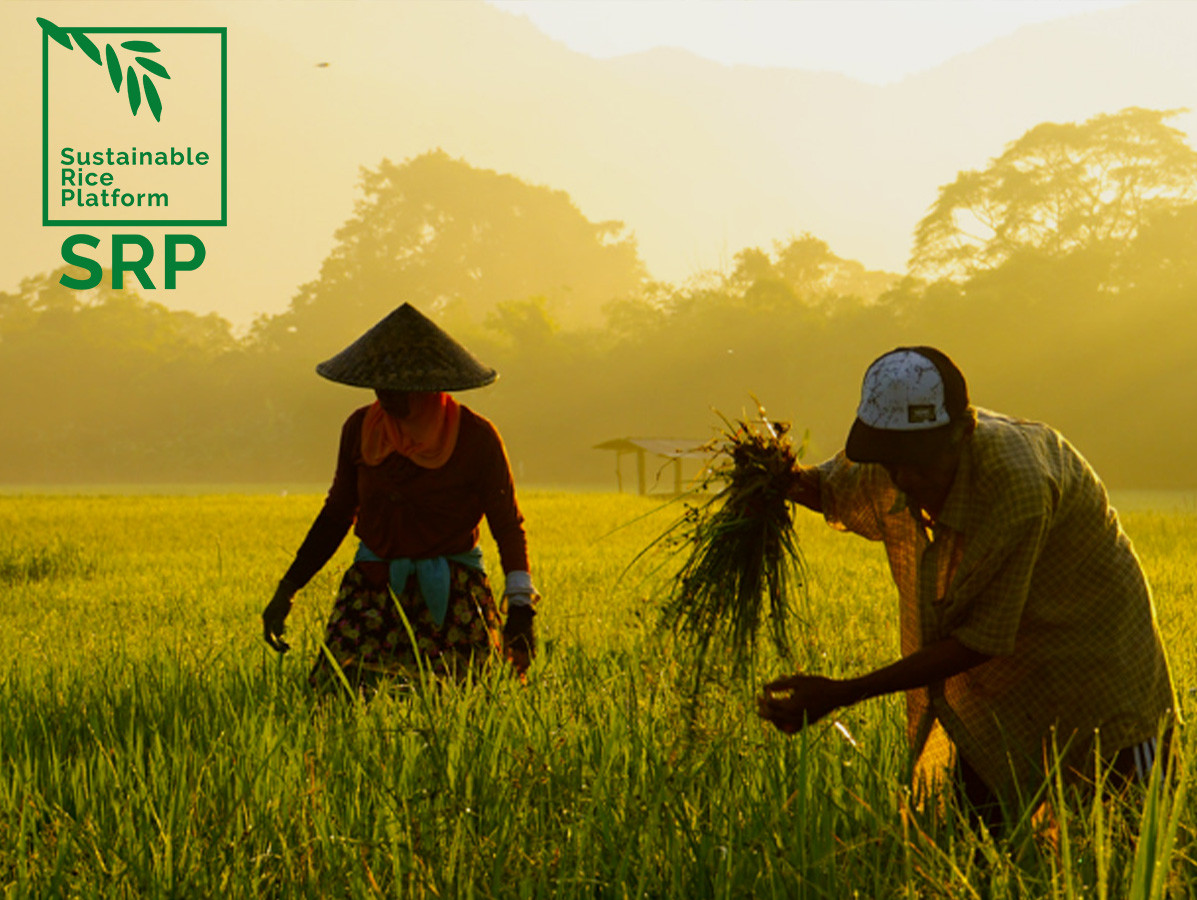
With its 'SRP around the World' awareness campaign, the Sustainable Rice Platform (SRP) is drawing attention to the major impact of rice cultivation on people and the environment, and the need for a switch to more sustainable cultivation. A number of major supermarket chains such as Albert Heijn, Kaufland and Lidl have already joined the platform.
"For a long time, sustainable rice did not receive much attention in the Netherlands," says Jop Blom, sustainable entrepreneur and spokesperson for Sustainable Rice Platform in Europe. "This is mainly due to the fact that it is not the main ingredient of our cuisine. Rice is eaten in the Netherlands, but not as much as in Asia, for example. Other product groups therefore preceded rice. Coffee, bananas and chocolate: these products are ahead of rice." SRP mainly targets retailers and other companies in the rice chain, rather than consumers.
The demand for sustainable rice in the Netherlands is currently not coming from consumers, but mainly from retailers. "Sustainability is an important issue for companies within the food chain, including supermarkets. They themselves are looking for more sustainable products. By making the use of sustainable rice a condition for their suppliers, they can help accelerate the sustainability of the rice chain. The more retailers choose sustainable rice, the sooner a turnaround can take place."
That turnaround is needed, explains Wyn Ellis, Executive Director SRP. "The current way of growing rice contributes to climate change. Growing rice currently uses 30 to 40 per cent of the world's available freshwater. The sector is responsible for nearly 10 per cent of the total methane emissions produced by humans. Climate change, in turn, has a negative impact on rice cultivation. If no action is taken, global yields could fall by 15 per cent. This is alarming, especially when you consider that almost half the world's population depends on rice as the main staple of their diet. And more than a billion people depend on the rice industry for work and income. Demand for rice will only increase further in the coming years, the International Rice Research Institute (IRRI) has calculated. We are committed to providing a sustainable solution to this growing demand."
Since 2021, consumers can recognise sustainable rice by the 'SRP Verified' hallmark. "A number of products with this hallmark are currently on sale at Lidl, Albert Heijn and soon also at Jumbo," Blom said. "This quality mark has been selected by Milieu Centraal (Environment Central) as one of the 12 top food labels in 2022. This designation helps us win over retailers who value sustainability: they are keen to add this quality mark to their range." Blom hopes that, in cooperation with supermarkets and other companies in the food chain, consumers can be reached. "We initially focus on influencing companies. A marketing campaign aimed at consumers is much more costly, and is beyond our budget. We want to encourage companies to start communicating about sustainable rice to their customers themselves. They have a much larger reach than we do. Moreover, it gives the message more power when companies show that they underline our vision and want to work together for a sustainable future."

However, the platform focuses not only on the demand side, but also on the producer. "We are working with partners worldwide with more than 20 large-scale projects to make rice more sustainable. More than 150,000 farmers in different countries are affiliated with us and are adopting more sustainable farming methods. Initial analyses of some of these projects show that, on average, this has resulted in a 50 per cent reduction in CO2 emissions, 20 per cent water reduction and 10 per cent reduction in pesticide use. The reduction in pesticide use reduces costs for the farmer. At the same time, the quality of the crop tends to be higher. This ensures better yields. These are strong arguments to convince farmers that things can and should be done differently," Ellis said. There is another advantage to using sustainable farming methods. "One of the biggest problems for rice growers is that yields are not very reliable. Climate change is worsening this. We teach growers cultivation techniques that provide more continuity in terms of yield."
Ellis is by no means afraid of a shortage of sustainable rice in the event of a sudden increase in demand. "The advantage of the SRP label is that it takes relatively little time for a farmer to operate under the label. In the case of the 'organic' label, it takes three years, provided the farmer meets all the requirements. With our label, if the farmer meets the requirements, he can do so as early as the next harvest. As a result, when demand rises quickly, supply does not have to lag far behind."
The Sustainable Rice Platform is an initiative of the UN Environment Programme, the International Rice Research Institute, Germany's GiZ and over 110 private and public members and players within the global rice production chain, among others. In 2011, they launched the SRP multi-stakeholder programme. Within it, research is conducted to promote more sustainable rice cultivation, production, policy-making, trade and consumption. The vision of the platform and its members is to continue feeding the world sustainably by bringing about a change in the sector that puts healthy, high-quality and nutritious rice for consumers at the heart of its work. At the same time, the platform helps workers and smaller farmers improve working and living conditions and also further protect our planet.
Main photo: ©Anek Sangkamanee/Shutterstock.com
Source: Vakblad Voedingsindustrie 2023